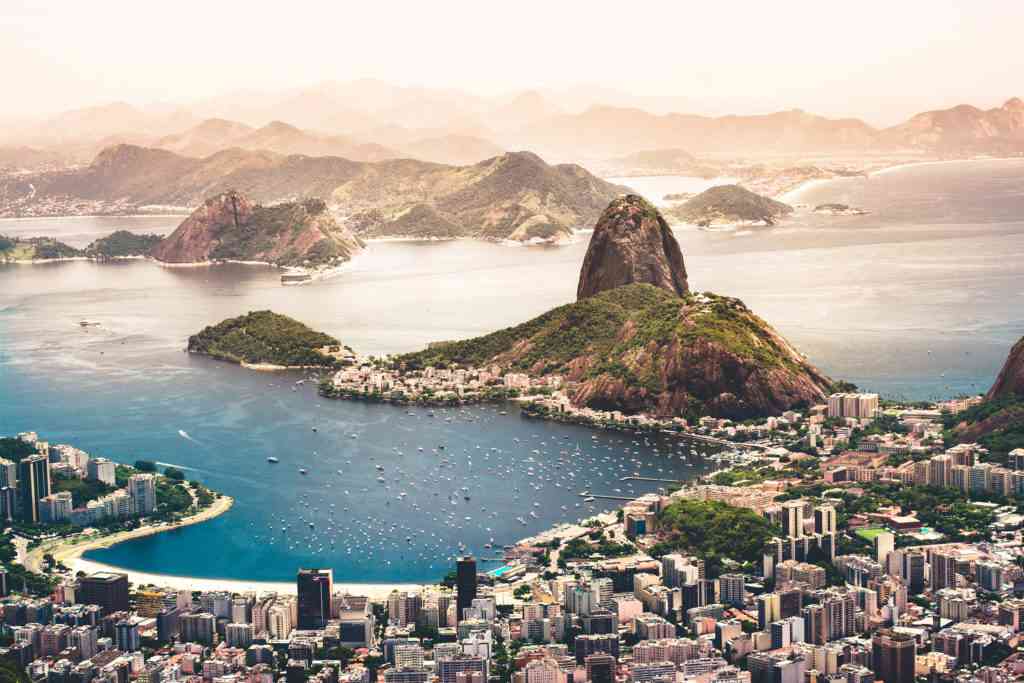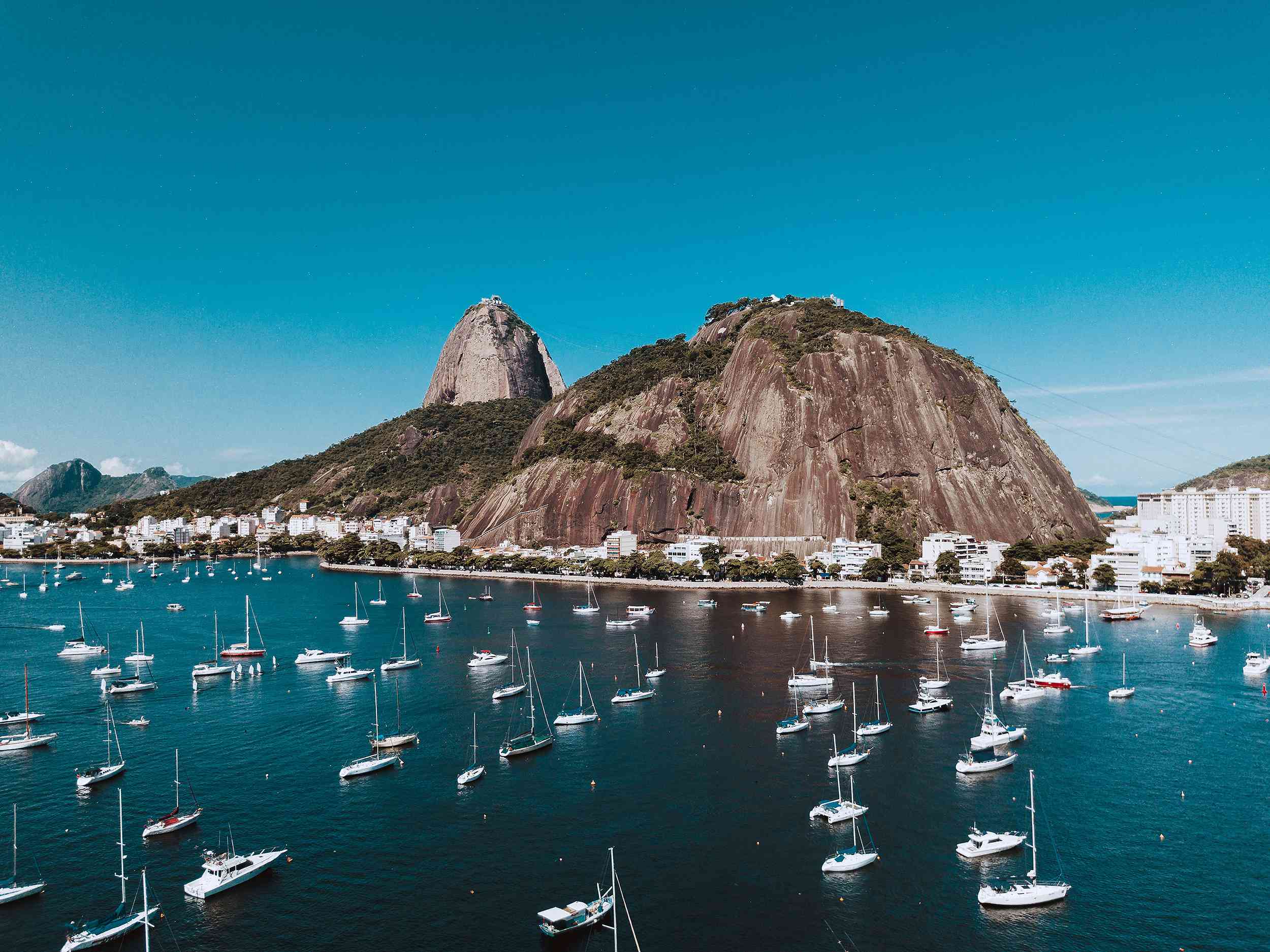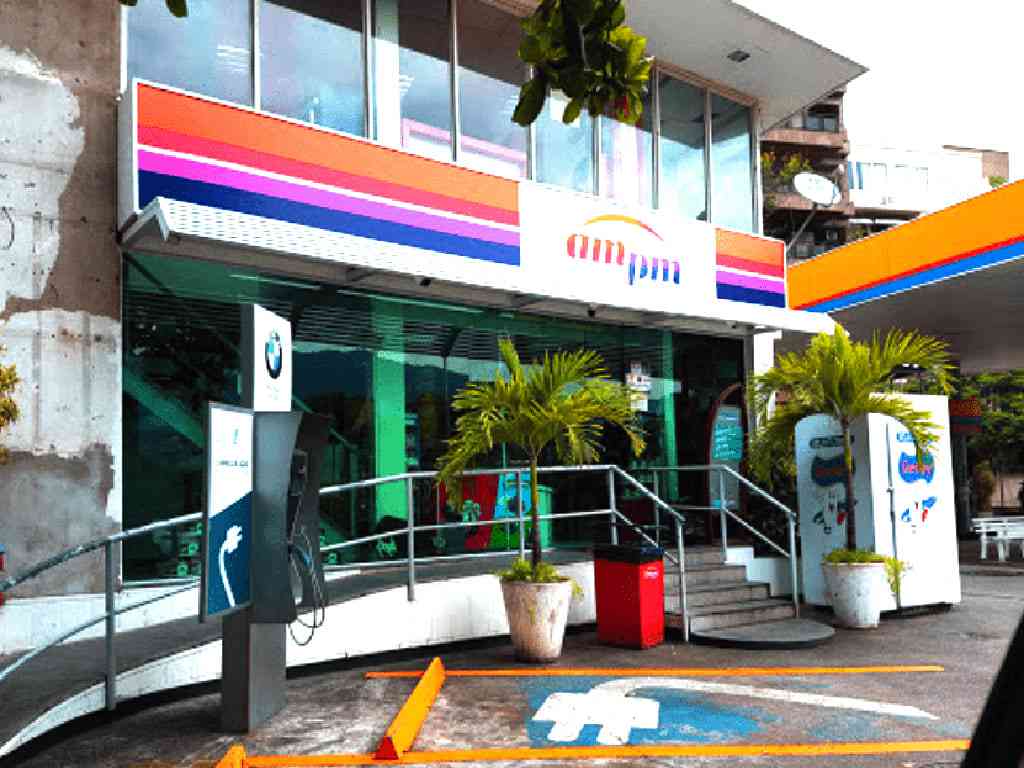Table of Contents
Can You Drink Tap Water in Rio de Janeiro?
No, tap water is not drinkable.
Tap Safe includes data from many publicly available sources, including the WHO (World Health Organization), CDC (Center for Disease Control), and user submitted databases, but unfortunately there's not enough data about Rio de Janeiro.
To see user submitted ratings of the water quality for Brazil, see the "User Submitted Ratings" box on this page.
Travelers should avoid drinking Rio’s tap water. Although the water has been purified, CDC does not account for potential contamination during transportation. Due to treatment, the flavor is also disagreeable.
You can bring your own filter and purchase bottled water to enhance the flavor. To increase the water quality, some hotels have their own filtering systems.
The water in restaurants is filtered, tastes good, and is safe to drink. However, it’s only served frozen, like ice cubes that. Unlike in the USA, tap water over ice is not served in Brazilian restaurants. You need to buy bottled water like you would buy a soft drink, either carbonated or regular.
Brazil has a more enormous drinkable water reserve in the world. And most companies responsible for water treatment have world-class quality. But unfortunately, there is a lousy distribution between regions, so it’s safer to use tap water in the major cities in the Southeast and South regions, like in São Paulo, Rio de Janeiro, Belo Horizonte, and Curitiba.
Source of Water in Rio de Janeiro, Brazil

In Rio de Janeiro, the tap water originates from the surface water of Guandu River, and Paraíba do Sul River. The river provides water to 9 million people in Greater Rio de Janeiro. Many streams of the river rise in the 4,398 hectares Mendanha State Park, built-in 2013. An aqueduct brings the water across the Pedra Branca State Park to Rio’s south zone.
Rio de Janeiro boasts the world’s largest water treatment plant, and it’s working overtime. The Guandu Water Treatment Station provides 90 percent of the city of Rio’s water, and it’s increasingly grappling with water quality problems. One challenge is that forest loss and landscape degradation upstream to the town is causing soil erosion, which generates more pollution, and fills reservoirs with sediment instead of water. This causes costly water treatment and dredging needs.
Trees naturally filter the water that runs through them, providing cleaner water to people downstream, and reducing water treatment costs. Forests also protect cities from floods and landslides, and reduce wear and tear on downstream built infrastructure like dams and treatment plants.
Supplying water to 9 million people puts tremendous pressure on the Guandu treatment plant. Because of the volume of water moving through it, even a low rate of pollution can result in high costs. And the challenge is intensifying—to meet the city’s demand in 2030, the supply of treated water may need to increase up to 50%. Rio de Janeiro is also facing a budget crisis. Spending more and more on water treatment isn’t good for the city.
Rio de Janeiro Tap Water
Have you ever wondered about Rio de Janeiro tap water? The water is clean, pure and it has the right minerals to make your body healthy. I am sure that when you went there for the first time, you were attracted by the beautiful buildings, beaches, and vibrant nightlife. But before you take a dip into the beautiful water, you must know about Rio de Janeiro water, tap water, or Rio de Janeiro water. This is the kind of water you can find in many hotels, restaurants, and clubs in Rio. In the past, tap water came from a well in the city, but nowadays, most tap water comes from the municipal tap and is treated.
Rio de Janeiro is considered the central city’s water supply because it comes from a reservoir. It is free from any bacteria, and it also does not contain any chemicals. You must be aware that tap water from Rio de Janeiro cannot be used for cooking purposes as it contains bacteria. The water can be used for drinking, bathing, and washing as it is safe as long as it is not overfilled. Many filtration systems can be found in homes to purify the water that we use.
It is essential to know about Rio de Janeiro water as we cannot deny that this water is absolutely safe for our health, and as long as we use it in the right way, it can do wonders for our body. It makes us stronger physically and mentally. Many myths surround this water, but the truth is that it is very beneficial and an excellent way to keep our bodies healthy and fit. Try to avoid those myths and read about Rio de Janeiro tap water before taking a plunge into the river.
Water in Rio de Janeiro
Rio de Janeiro, the most populous Brazil, is the most popular tourist destination in South America. Today, it is one of the world’s fastest-growing economic and cultural centers, attracting millions of visitors annually. The city is typified by stark contrasts: poverty and riches, technology and nature. The city is rich partly due to its natural assets like the vast Amazon rainforest, partly due to its booming tourism and industrial sector.
Besides being a vacation spot, Rio de Janeiro also offers a wide variety of services and recreational activities for tourists from all over the world. The city’s diverse landscape and exciting history attract people from every walk of life, ensuring a diverse population with something to do no matter where they are coming from. For example, tourists staying in the favelas (poor neighborhoods) will find it challenging to access basic necessities like drinking water and sanitation facilities. However, if they find some time to travel to the northern part of the city where the beaches are, they will be rewarded with pristine beaches, excellent drinking water, and good healthcare.
To access some of the recreational waters around Rio de Janeiro, visitors need to know how to make their way through the slums. Although some areas are safe for tourists to access, others are not. The problem is not unique to Rio; some communities suffer from sewage contamination to access the purest recreational waters across the world. The majority of the sewage contamination occurs inside favelas, which are the poor neighborhoods located along the outskirts of town. Unfortunately, these areas have often had to deal with inferior sewage and health hazards for so long—old those myths and read about Rio de Janeiro tap water before taking a plunge into the river.
Rio de Janeiro Bottled Water
When I was in Rio de Janeiro, I investigated the tap water that I was offered, and it turns out that tap water in Rio de Janeiro is not of the best quality. The water tastes like chemicals and has a very pungent smell. It also has a robust chlorine taste. I don’t know if it was because of the cleaning crew or the pollution in the city, but the water stunk! I decided to stay away from the place that made me ill, so I went for an expensive hotel that offers a variety of excellent amenities and a relaxing atmosphere to its guests.
The one positive thing I noticed about this whole experience is that there are actually a couple of hotels that provide free water to their customers. This is great for tourists like me who are always in need of a refreshing drink. When I got home, I checked the rating on the hotel where I was staying and was surprised to find that the water I got there was pretty good. I did use some of the bottled water, though, and it turned out that it was not nearly as good as the water I had in Brazil.
If you will be spending time in Rio de Janeiro, I would definitely take some bottled water along with you. I don’t know about you, but I have never been more comfortable drinking water straight from a faucet than I am right now. In addition to that, I would definitely recommend that you take a shower instead of taking a bath. Doing so causes the water to foam and wash away any dirt and soap residue inside of you.
Drinking Water in Rio de Janeiro
Although tap water here is considered perfectly safe, it recently made headlines not just because of its high mineral content but also for introducing disease among the local populace. There have been numerous concerns and questions surrounding drinking water in Rio de Janeiro for quite some time now. Here are some of them.
The Chaco River near the Copacabana beach here in Rio de Janeiro features a significant problem regarding sanitation. Chaco is basically an untreated sewage body that includes raw sewage, garbage, and animal feces from the nearby slums. The river water eventually makes its way into the Olympic Park, the building adjacent to the Chaco River. Because of this ongoing problem, the head of the Olympic committee on health and safety was forced to visit the site last week to raise awareness among the locals and visitors regarding this issue.
Some other highlights include the alarming lack of access to clean and pure drinking water in Rio de Janeiro and the alarming amounts of pollution and garbage that are overflowing in the metropolitan area. Another big concern is the condition of the sewage system in Rio de Janeiro, which is a massive problem in cleaning up the water. One of the leading causes of this is the overflowing of raw sewage into the neighboring rivers and waterways. The locals use these rivers and waterways for bathing, drinking, washing clothes, and other daily activities. In addition, some of them have turned into significant sources of drinking water in Rio de Janeiro due to the excessive population of the locals.
Rio de Janeiro Water Treatment
Like the Brazilian Army in the favela, the U.S. Brazilian Joint Task Force-Bravo conducted a shoddy water treatment plan that endangered innocent civilians’ lives. The Rio de Janeiro water treatment plant, which was meant to provide medical aid and filter out drugs and other toxic chemicals, failed to meet the required standards and should have been closed down immediately. The military members failed to realize that all the drug dealers would have gone on strike if they had closed it down, and the Olympics would not have happened. Also, the military failed to realize that the Olympics was supposed to bring Brazilians together and unite as a people. If only the high command members of Brazil’s Army had been more attentive to their duty to protect the city from drugs and terrorists, all the problems we are experiencing today in Rio de Janeiro would not have occurred.
All the major airlines have pulled out from Rio de Janeiro due to Rio’s security issues in recent months. In August, the Brazilian high command ordered all buses to no longer carry passengers from the city center to the outskirts. Also, all trams and light rail systems were to be stopped and disabled. Trains were rerouted to other cities instead of allowing the passengers to cross over to the inside of the metro system. So, as you can see, the entire city of Rio was closed to all non-military members and tourists for security reasons. Not one traveler from the United States has traveled to Rio de Janeiro since this order was issued. Both American and Brazilian travelers are feeling the wrath of the former.
All the Olympic Games, which were supposed to bring the world to Brazil, were put off forever due to this incompetence. Although there is still anger in Brazil from the failure of the Olympic Games, millions of Brazilians have taken to the streets in demonstrations. They have demanded better government from President Dilma. Many Brazilians feel the United States Southern Command Joint Task Force-Bravo was ineffective in protecting them during the attacks in Rio.
Other links:
- Is Rio’s Water Dangerous? Here’s What to Know Amid Brazil’s Pollution Crisis
- Is the Drinking Water Safe in Brazil?
- https://www.lonelyplanet.com/brazil/rio-de-janeiro/health
What do people in Rio de Janeiro think about the tap water?
Tap water in Rio is safe to drink but, owing to the treatment process, it may not taste very pleasant. Aside from buying bottled water,you can bring your own filter to improve the taste. Some hotels have their own filtration system to improve the water quality.

The estimated price of bottled water
$0.58 in USD (1.5-liter)
USER SUBMITTED RATINGS
- Drinking Water Pollution and Inaccessibility
- Water Pollution
- Drinking Water Quality and Accessibility
- Water Quality
The above data is comprised of subjective, user submitted opinions about the water quality and pollution in Rio de Janeiro, measured on a scale from 0% (lowest) to 100% (highest).
Related FAQS
Reminder
Always take extra precautions, the water may be safe to drink when it leaves the sewage treatment plant but it may pick up pollutants during its way to your tap. We advise that you ask locals or hotel staff about the water quality. Also, note that different cities have different water mineral contents.
Sources and Resources
Sources Cited
Additional Resources
Traveler's Notes
Tap water in Rio is safe to drink but, owing to the treatment process, it may not taste very pleasant. Aside from buying bottled water, you can bring your own filter to improve the taste. Some hotels have their own filtration system to improve water quality.
Current Weather in Rio de Janeiro
RIO DE JANEIRO WEATHERSome of the Local Convenience Stores in Rio de Janeiro

- AM/PM
- Void
- Cardeal Point Do Pao
- Redbrian
- BR Mania
- Americanas
- Solution Express
- Shell Select
- Formiguinha da barata
- Recarga Expressa
- Liga do AçaÃ
- Empório São Roque
- Alô Madruga
- Posto Petrobras
Estimated Price of Bottled Water
| Volume | BRL | USD | EUR | GBP |
| 1.5-liter | R$2.77 | $0.66 | €0.59 | £0.51 |